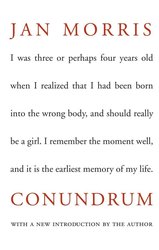The most popular narrative about transsexuality suggests that some people are born in the wrong body – that their bodies do not correspond to their inner experience and that their bodies should therefore be transformed. But in the view of the sociologist and trans activist Miguel Missé, this narrative is a harmful myth. It is rooted in a medical paradigm that typically leads to medical intervention – to the use of hormones and surgical operations. By proposing a particular solution (modifying one’s body), doctors and psychiatrists make it difficult for trans people to overcome malaise about their body in other ways and prevent them from recognizing the burden of social norms. Drawing on his own personal experience, Missé makes the case for a different way of thinking about trans embodiment which focuses on gender identity. The trajectory that leads people to become trans is shaped by the rigidity of gender norms, where the only two models available to individuals are the masculine man and the feminine woman. But these are not the only possible choices, and by critically interrogating the rigidity of gender norms, Missé opens up a different way of thinking about being trans, beyond the essentialism of the medical paradigm.






